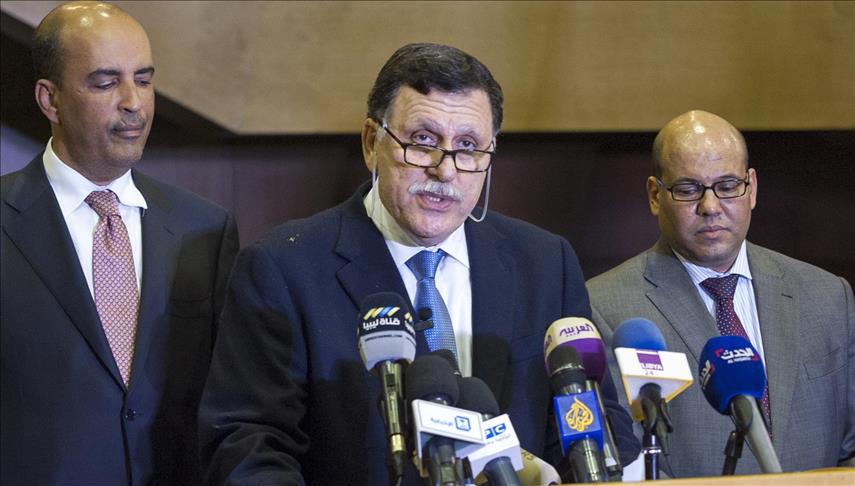Ahmad Bakhshi told the Strategic Council on Foreign Relations that agreements have been concluded in Libya to form a transitional government, adding that the issue of peace in Libya is a very complicated and time consuming process.
“Given that the civil war in Libya is now a war of attrition, domestic conditions and regional circumstances and the failure of parties to the war to mark victory, they have reached the conclusion that they need to clinch a peace accord. In fact, this decision has been made by domestic groups and their foreign backers, Russia and Turkey and the United Nations has made a lot of activities.”
He said regional countries and the European Union have reached the understanding that a peace agreement should be made in Libya.
“The peace talks was a long process. However, more important than these talks, was the understanding that the Libyan society can reach peace or will be able to pave the conditions for the establishment of peace.”
This expert of Africa issues referred to the announcement by Faez al-Seraj the president of the National Unity government that he is prepared to resign to achieve peace with other groups.
He said that the National Unity government had the upper hand in the field but such a decision has expedited the peace talks.
Referring to the many talks conducted to achieve a peace accord in Libya, he said the parties to the conflict have reached the conclusion that peace without cooperation and participation of other groups would not be possible especially when a country is divided into several areas and the problem has been exacerbated during the past 10 years after the death of General Qaddafi.
Khalifeh Haftar earned more concessions
He said a joint military committee (5+5) has been formed for the transition of power in order to maintain national unity and national institutes, adding that according to the peace accord between the conflicting parties, the production and export of Libya oil will occur under the supervision of the United Nations and the Libyan National Oil Company.
“The revenues generated by the export of oil shall be shared equally by the parties. Of course, given the strong presence of population in the West of Libya, compared to the east of Libya, if we wanted to look at the war in the field, we can see that Khalifa Haftar did not make a victory and faced problems. However, he succeeded in earning more concessions which was definitely due to the measures taken by al-Seraj in line with the national interests of Libya.”
Bakhshi added that “this is anyway the transitional period. And for the transitional period, all the institutes, countries and domestic elements and foreign and domestic groups may have reached the conclusion that the work should be done.”
Referring to the necessary conditions for holding free and fair elections under the support of the United Nations, he said it seems that the present determination of the two parties is focused on holding elections in Libya. However, he said, this problem will exist and given that both parties want to secure shares in the power and decide to change the constitution, there will be special problems.
The necessity of prolonging the transitional period
Bakhshi added that “given that there is the possibility that none of groups may win the elections, it seems that one year cannot be a good period for holding elections. One group may gain more than 50 plus one percent of the votes. However, that group may not be able to attract the satisfaction of the parties unless after the elections, they reach the conclusion that they need to form a coalition government. And this may lead to the formation of a fragile government.”
This professor of international relations emphasized that dealing with issues related to peace is a good news for the Libyan society and the international community of course, adding that such a fragile peace and conditions after the elections should be considered by the Libyan society as it plays a role in the future of the people.
The weight and share of the groups are not clear in the peace accord
He continued that of course after this period, and due to the fact that the weight and share of the groups have not been clarified in the peace accord, some of the groups that have played a greater role during and after and before the Qaddafi period, and even some groups that are being supported by conservative Arab countries of the Persian Gulf are not interested in seeing a Muslim Brotherhood group to take the power. These will be influential after the elections.
He emphasized that the crisis in Libya is a structural problem and the legacy of the Qaddafi era.
“It seems that under such circumstances, if the United Nations or relevant organizations had prolonged the transitional period to pave the grounds for the transition of power, there would been have been more hope for the success of the peace process.”
The election atmosphere would intensify the fragility of peace in Libya
This analyst of Africa affairs said the election atmosphere would intensify the fragility of the peace in Libya, adding that until before the election, each party that considers itself as the winner of elections, many of these groups would not respect it. Moreover, the interests of the regional countries are also at stake.
He added that “therefore, there are many highs and lows and there will be concerns that after the elections, the United Nations would be having a series of mediations. If the structural gap of the Libyan society is not filled, we would wait to see the continuation of crisis after the elections.”










0 Comments